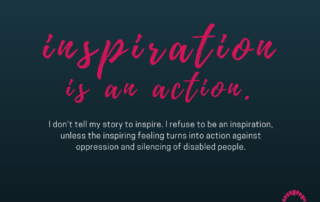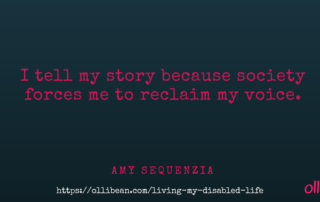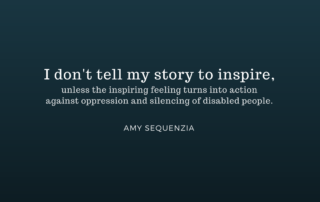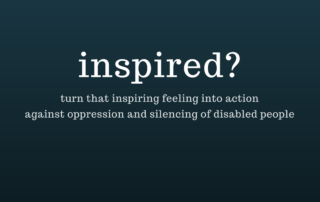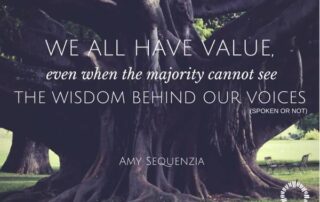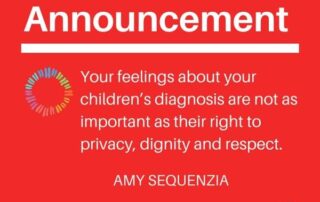Living My Disabled Life: My Story Is Mine to Tell Part 3
How I Tell My Story by Amy Sequenzia. Living my disabled life: My Story Is Mine to Tell Part 3. (Part 1 Autism: My Story Is Mine to Tell and Part 2 Love, Respect and “Autism Parents” ) By living my life. Unapologetically. Fiercely. With pride. I am me. I am disabled and I am a perfect being, despite the bias and oppression imposed on me. I am a perfect being despite my human flaws. My story is mine. The life I live is the one I have. I like my life. I don’t like what non-disabled people believe my life to
Assumptions and Ableism
I've recently read an article about how some researches are slowly starting to debunk long held assumptions about autism, Autistics, functioning labels, and how the world needs to provide more appropriate education to “all” Autistics. This is a quote from a researcher (Laurent Mottron): "Early childhood interventions should focus on harnessing strengths, rather than erasing the difference between autistic children and neurotypical kids" Of course, Actually Autistic people have been saying this forever. We have been warning parents about the damages caused by "therapies" that seek to train Autistics to make us look "indistinguishable from our peers” for a long
Privacy, and Parental Behavior
I've written about this before: parents of Autistic children sharing very private information about their kids, sharing moments that show the kids being upset, or having meltdowns. These parents share everything publicly, using pictures and videos, the children's real names, even if the children are adults. Some say that they are trying to help other families, by showing the "real face of autism". These are the "martyr parents". Others are very angry "at autism" and say they are doing what any parent who loves their children would do: “fight autism”. These parents call themselves "warriors". Still

